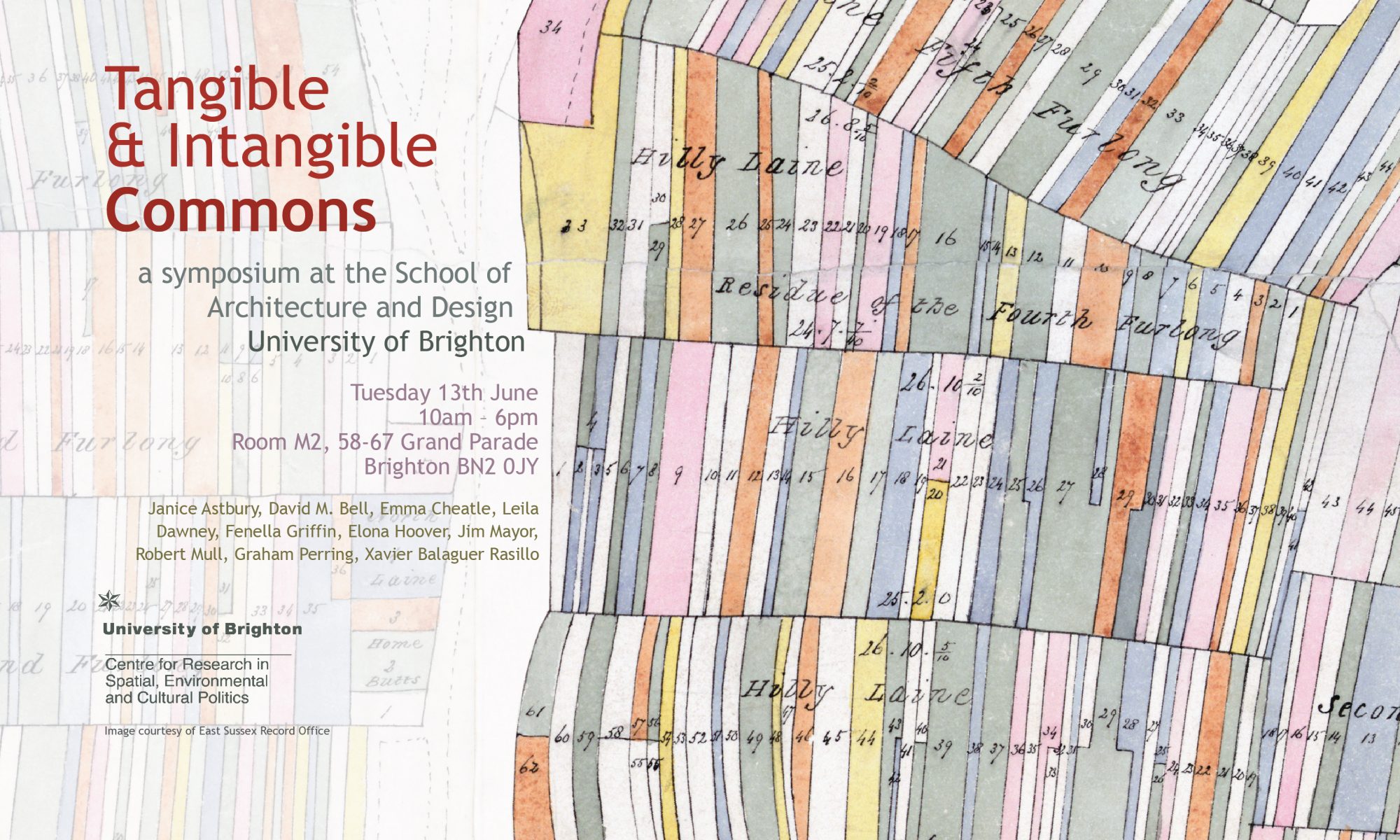Running approximately north-south through the centre of Brighton, Valley Gardens may be one of the last remaining stretches of what was once the common land over which the city was built. Yet no ‘registered’ commons now exist here.
Its current use and future development contested, some of the fragments of land which constitute Valley Gardens are, nevertheless, currently occupied in ways which are indistinguishable from modes in which other ‘urban’ commons are used. Other parts resemble municipal gardens and others still are simply neglected.
Meanwhile academic discourse about commons has shifted in recent years from these notions of physical, common spaces to encompass much broader ideas of common and co-operative ownership, common rights, and hierarchies of power.
Tangible and Intangible Commons attempts to bridge and interlace what has become a separation between these theoretical and practical commons, and to situate this potential ‘common ground’ at Valley Gardens. This symposium both embraces and challenges the traditional, spatially-orientated view of ‘commons’ with ideas of “expanded commons: intangible, more-than-human and temporal commons.”[1]
Through the use of conference papers as well as participatory techniques and commoning practices, this symposium aims to situate these concerns in the wider debate about what the ‘commons’ means; to ask what a re-commoning of Valley Gardens, and other spaces like it, might look like and signify.
Organised by: Dr. Alessandro Zambelli, Senior Lecturer, School of Architecture and Design, University of Brighton.
This event is co-sponsored by the School of Architecture and Design and the Centre for Research in Spatial, Environmental and Cultural Politics.
To attend please register here.
__________________________________________________________________
[1] Dawney, Leila, Samuel Kirwan, and Julian Brigstocke. Space, Power and the Commons: The Struggle for Alternative Futures. London: Routledge, 2016.
